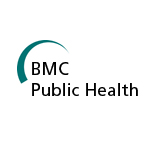
Abstract
Background
Quality and essential health information is considered one of the most cost-effective interventions to improve health for a developing country. Healthcare portals have revolutionalized access to health information and knowledge using the Internet and related technologies, but their usage is far from satisfactory in India. This article describes a health portal developed in India aimed at providing one-stop access to efficiently search, organize and share maternal child health information relevant from public health perspective in the country.
Methods
The portal ‘Repository on Maternal Child Health’ was developed using an open source content management system and standardized processes were followed for collection, selection, categorization and presentation of resource materials. Its usage is evaluated using key performance indicators obtained from Google Analytics, and quality assessed using a standardized checklist of knowledge management. The results are discussed in relation to improving quality and access to health information.
Results
The portal was launched in July 2010 and provides free access to full-text of 900 resource materials categorized under specific topics and themes. During the subsequent 18 months, 52,798 visits were registered from 174 countries across the world, and more than three-fourth visits were from India alone. Nearly 44,000 unique visitors visited the website and spent an average time of 4 minutes 26 seconds. The overall bounce rate was 27.6%. An increase in the number of unique visitors was found to be significantly associated with an increase in the average time on site (p-value 0.01), increase in the web traffic through search engines (p-value 0.00), and decrease in the bounce rate (p-value 0.03). There was a high degree of agreement between the two experts regarding quality assessment carried out under the three domains of knowledge access, knowledge creation and knowledge transfer (Kappa statistic 0.72).
Conclusions
Efficient management of health information is imperative for informed decision making, and digital repositories have now-a-days become the preferred source of information management. The growing popularity of the portal indicates the potential of such initiatives in improving access to quality and essential health information in India. There is a need to develop similar mechanisms for other health domains and interlink them to facilitate access to a variety of health information from a single platform.
Keywords: Health information; Information management; Access; Health portal; Digital repository; Repository on maternal child health; India